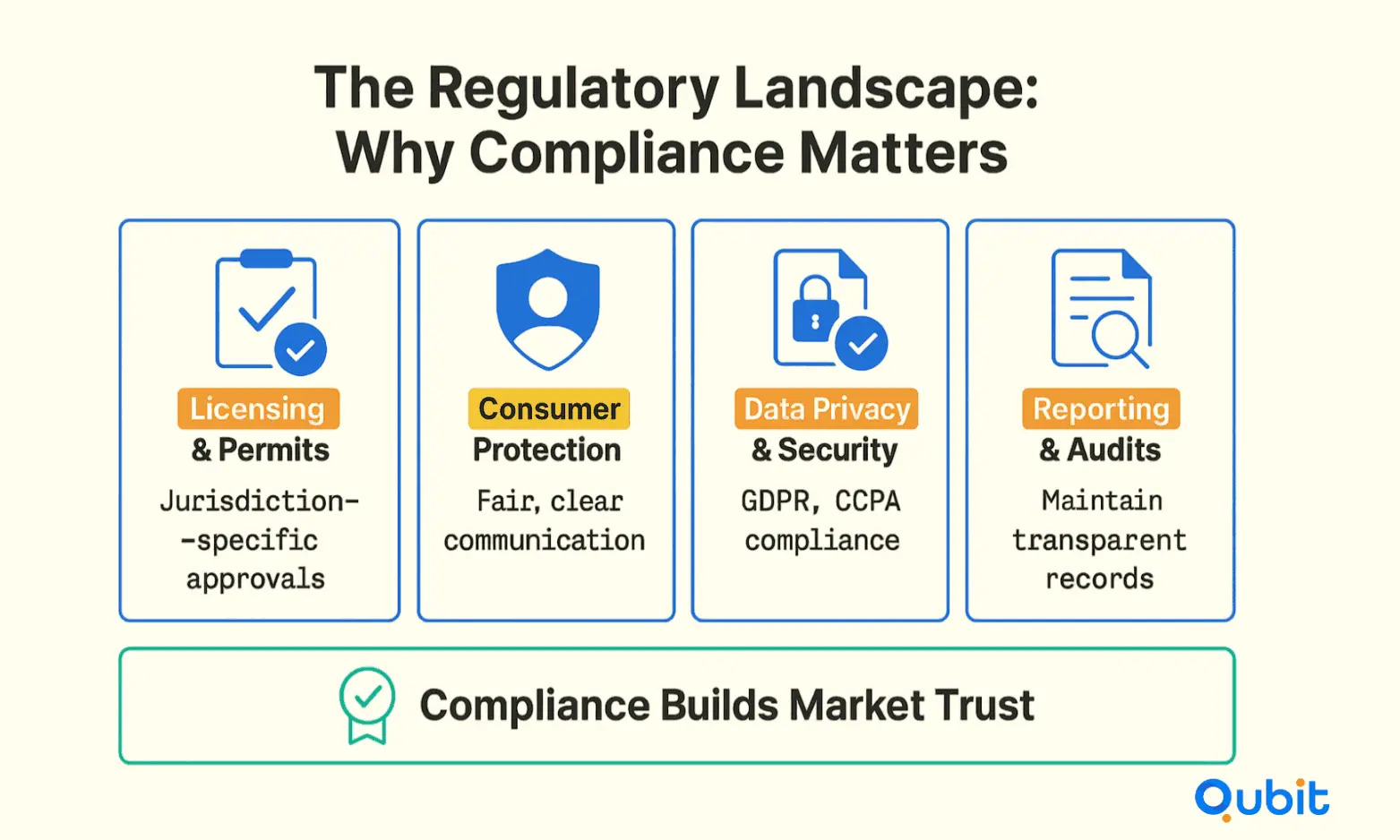The insurance industry is undergoing a profound transformation, driven by the rise of insurtech—technology-powered startups that are reimagining every aspect of insurance, from underwriting and claims to customer engagement and risk management. While the opportunities are vast, insurtech startups face a uniquely challenging regulatory landscape and must master compliance and covenant management to survive and scale.
Your exploration of regulatory frameworks is complemented by the insights found in insurance startup fundraising strategies, which broaden the discussion by connecting funding dynamics with compliance challenges.
This article explores the critical dimensions of insurtech compliance and covenant management, offering practical insights for founders, compliance officers, and innovators seeking to build resilient, trustworthy, and growth-ready insurance ventures.
The Regulatory Landscape: Why Compliance Matters
Insurance is one of the most regulated industries globally. Its products directly impact people’s financial security and well-being, so governments and regulators impose stringent rules to protect consumers, ensure solvency, and maintain market stability. For insurtech startups, compliance is not just a legal obligation, it’s foundational to earning trust, attracting partners, and building a sustainable business.

Key Regulatory Challenges for Insurtech Startups:
- Licensing & Permits: Startups must obtain the necessary licenses to operate, often on a state-by-state or country-by-country basis. Each jurisdiction has its own requirements, making expansion complex.
- Consumer Protection: Regulations demand clear communication, fair treatment, and robust data privacy practices.
- Data Protection & Privacy: With the proliferation of big data, IoT, and AI, compliance with laws like GDPR (Europe) and CCPA (California) is non-negotiable.
- Ongoing Reporting & Audits: Startups must maintain transparent records and submit regular reports to regulators.
Failure to comply can result in fines, reputational damage, or even business closure. But compliance, when done right, can also be a competitive advantage, demonstrating reliability and opening doors to new markets and partnerships.
How Insurtech is Revolutionizing Compliance
Traditional compliance processes are often manual, slow, and error-prone. Insurtech startups, however, are uniquely positioned to leverage technology for smarter, more agile compliance management.
Regtech: The Compliance Engine
- Automation & AI: Regtech solutions, a subset of insurtech, automate compliance tasks such as policy analysis, regulatory monitoring, and reporting, reducing human error and operational costs.
- Real-time Monitoring: AI-powered platforms can track regulatory changes and flag compliance gaps instantly, enabling startups to adapt quickly.
- Blockchain & Smart Contracts: Blockchain ensures transparency and immutability in record-keeping, while smart contracts can automate compliance with policy terms and regulatory requirements.
Example: US-based Monitaur uses an AI-powered “policy to proof” model to simplify governance and compliance, while startups like Etherisc use blockchain to automate claims and enhance transparency.
The Building Blocks of a Robust Compliance Framework
To navigate the regulatory maze, insurtech startups must build a compliance framework that is both rigorous and adaptable. Here are the key components:
A. Licensing and Registration
- Map Jurisdictional Requirements: Identify every region where you plan to operate and understand their specific licensing rules.
- Engage Early with Regulators: Transparency and proactive engagement can smooth the path to approval and foster goodwill.
B. Policy and Product Compliance
- Standardize Policy Documents: Ensure all policy wording, terms, and disclosures meet regulatory standards and are easily understood by consumers.
- Use Legal Toolkits: Resources like the UK Insurtech Board’s legal toolkit provide startup-friendly templates for contracts, NDAs, and agreements, conforming to industry norms.
C. Data Privacy and Security
- Implement Data Governance: Define clear policies for data collection, storage, processing, and sharing, aligned with GDPR, CCPA, and other relevant laws.
- Invest in Cybersecurity: Protect customer data against breaches with robust encryption, access controls, and regular security audits.
D. Ongoing Monitoring and Reporting
- Automate Reporting: Use regtech tools to generate and submit compliance reports efficiently.
- Conduct Regular Audits: Internal and external audits help identify gaps and ensure continuous improvement.
Covenant Management: Beyond Compliance
Covenant management refers to the ongoing management of legal agreements, obligations, and promises made to regulators, partners, and customers. For insurtech startups, this is essential for maintaining trust and operational resilience.
Types of Covenants in Insurtech
- Regulatory Covenants: Commitments to maintain solvency, adhere to capital requirements, or implement specific risk controls.
- Partner Covenants: Agreements with insurers, reinsurers, or distribution partners, often including performance metrics, data sharing, and compliance obligations.
- Customer Covenants: Promises embedded in policy documents, such as claims handling standards or data privacy assurances.
Best Practices in Covenant Management
- Centralize Documentation: Use cloud-based platforms to store and manage all covenants and agreements, ensuring easy access and version control.
- Track Obligations: Implement systems to monitor deadlines, deliverables, and compliance status for each covenant.
- Automate Alerts: Set up automated reminders for key dates (e.g., license renewals, reporting deadlines) to avoid breaches.
- Regular Reviews: Periodically review covenants to ensure they remain aligned with evolving regulations and business goals.
Partnering for Compliance: The Role of Collaboration
No insurtech startup operates in isolation. Partnerships with traditional insurers, reinsurers, and technology providers are often essential for market access, capacity, and credibility.
Benefits of Strategic Partnerships
- Regulatory Guidance: Established insurers have deep experience navigating compliance and can offer invaluable support.
- Shared Resources: Legal toolkits, compliance frameworks, and technology platforms can be shared or co-developed.
- Market Access: Partnerships can accelerate licensing and entry into new markets.
The Customer Experience: Compliance as a Differentiator
Compliance is not just about ticking boxes—it’s about building trust. A transparent, customer-centric approach to compliance can set a startup apart in a crowded market.
Key Strategies:
- Clear Communication: Use plain language in policy documents and disclosures, making it easy for customers to understand their rights and obligations.
- Proactive Data Protection: Clearly explain how customer data is used and protected, and offer easy-to-use privacy controls.
- Responsive Support: Provide accessible channels for customers to raise concerns or complaints, and resolve issues promptly.
Technology Trends Shaping Compliance and Covenant Management
Insurtech is at the forefront of adopting new technologies to streamline compliance and covenant management:
Common Pitfalls and How to Avoid Them
Many insurtech startups stumble on compliance and covenant management. Here are some common mistakes, and how to avoid them:
- Leaving Compliance to the Last Minute: Integrate compliance into product development from day one, not as an afterthought.
- Underestimating Jurisdictional Complexity: Don’t assume “one size fits all”, tailor your approach to each market’s rules.
- Neglecting Data Privacy: Treat data protection as a core value, not just a legal requirement.
- Overlooking Covenant Tracking: Use dedicated tools to monitor all obligations and deadlines, avoiding accidental breaches.
- Failing to Communicate with Partners: Foster open, ongoing dialogue with insurers, regulators, and legal advisors.
The Future: Agility and Trust as the New Compliance Currency
The regulatory environment will only become more complex as technology evolves. Insurtech startups that build agile, tech-enabled compliance frameworks and robust covenant management systems will be best positioned to thrive.
Key Success Factors:
- Continuous Learning: Stay ahead of regulatory changes and emerging best practices.
- Technology Adoption: Invest in regtech, AI, and blockchain to automate and future-proof compliance.
- Culture of Compliance: Make compliance everyone’s responsibility—not just the legal team’s.
- Customer Focus: Use compliance as a tool to build trust, loyalty, and differentiation
1. Orientation for New Residents
Welcoming new residents with a structured orientation sets the tone for compliance. A well-designed onboarding process ensures that homeowners understand the rules and responsibilities from the start.
- Provide a Homeowner Welcome Packet: Include brochures, governing documents, and tools like the Maintenance Matrix. This packet clearly outlines tasks such as lawn care, irrigation, and external painting, distinguishing between owner and association responsibilities.
- Host Orientation Sessions: Use these sessions to explain community guidelines and answer questions. For example, distributing the Homeowner Welcome Packet during orientation can help residents grasp their obligations immediately.
By equipping new residents with the right tools and information, communities can prevent misunderstandings and encourage adherence to covenants.
2. Simplify Essential Documents
Complex documents often lead to confusion and non-compliance. Simplifying governing materials ensures that residents can easily understand and follow the rules.
- Streamline Maintenance Matrices: A simple chart, like the Maintenance Matrix, can clarify who is responsible for specific tasks, reducing disputes and ensuring smooth operations.
- Focus on Accessibility: Ensure documents are concise, visually organized, and free of jargon. This approach makes it easier for residents to reference rules when needed.
Clear documentation not only minimizes the risk of breaches but also fosters trust and transparency within the community.
3. Proactive Communication
Regular and timely communication keeps residents informed and engaged, reducing the likelihood of covenant violations.
- Send Timely Reminders: Take inspiration from a Florida board that proactively communicated seasonal roof maintenance needs. By sending reminders in advance and arranging service providers, they ensured compliance while simplifying the process for residents.
- Use Multiple Channels: Email, community apps, and physical notices can all be effective in reaching residents. Tailor communication methods to suit the preferences of your community.
Proactive communication not only prevents issues but also strengthens the relationship between the association and its residents.
Conclusion
Effective insurtech compliance and covenant management require a strategic blend of foresight, adaptability, and meticulous execution. Throughout this blog, we’ve explored key strategies and actionable insights that emphasize the importance of integrating compliance measures seamlessly into operational workflows. By adopting a proactive approach, businesses can mitigate risks, enhance transparency, and foster trust among stakeholders.
An integrated approach is not just beneficial—it’s essential for ensuring long-term success in the dynamic insurtech landscape. Whether it’s aligning regulatory requirements with business goals or managing covenants with precision, these practices lay the foundation for sustainable growth.
If you're aiming to present your compliance strategy effectively, our Pitch Deck Creation service can help you build a compelling, compliant narrative. Let us assist you in crafting a pitch that resonates with investors and showcases your commitment to compliance excellence.
Key Takeaways:
- Compliance is non-negotiable for insurtech startups and must be integrated from the outset.
- Regtech solutions and automation are revolutionizing compliance, making it faster, cheaper, and more reliable.
- Covenant management is essential for maintaining trust with regulators, partners, and customers.
- Partnerships with traditional insurers and use of legal toolkits can accelerate compliance and growth.
- Customer-centric compliance is a powerful differentiator in a crowded market.
- The future belongs to agile, tech-savvy startups that see compliance as an enabler, not a barrier.
Frequently asked Questions
What is insurtech compliance?
Insurtech compliance refers to the set of regulations and standards that govern how insurance technology companies operate. It ensures that both policyholders and insurers are protected, covering areas like data privacy, cybersecurity, and consumer protection.


 Back
Back



